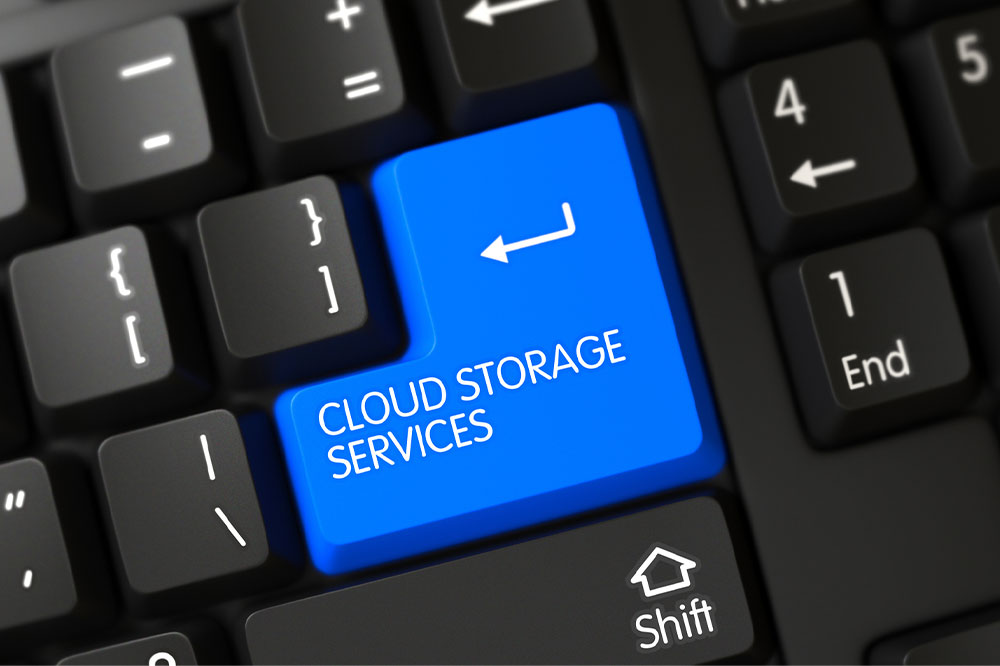Types and Working of the Cloud Storage
Cloud storage sounds like it is related to weather forecast or storm signal. But actually, it’s not even close to it. While some of you might know what cloud storage is, some of you are cloud storage virgins. Cloud storage is a simple and an easy way of storing various forms of digital files on one single platform. For all the computer users storing files was a real challenge. Some of you invested in larger hard discs or compact discs while some deleted the old data to store the new ones.

Every time we deleted a file, a part of our heart used to break. Cloud storage systems have made our lives much easier as you can have access to your files from anywhere and you don’t need any physical device or your computer for it. Also, you could allow other people to have access to the data turning your personal project into a group effort.
Instead of storing the data in computer’s hard discs or physical storage devices, you save it to a remote database and all you need is an internet connection which creates a link between your computer and that database. People, who have their accounts on Instagram, Gmail and Facebook, claim they don’t know a thing about the cloud, have no idea that they are already using the cloud in the form of all these apps.
Cloud basically, stands for a collection of networked computer hardware working together to provide various aspects of computing by way of online services. Using cloud storage decimates the acquisition & management costs of buying and maintaining our storage infrastructure, and delivers the data anywhere and anytime without any hustle and bustle.
Types of cloud storage
The various types of cloud storage listed below on the basis of different uses cloud can be categorized as follows:
Private cloud storage
It’s designed for the use of one person or company. You have a more administrative control here so only you have access to it.
Public cloud storage
It’s designed for public meaning anyone who you authorize can have access to it. It’s mostly used for business purposes where you need collaborative efforts in completing a project.
Hybrid cloud storage
It forms a mixture of private and public clouds. You can keep the important data on the private cloud and least important data on the public cloud.
How do they work?
Let’s discuss the basics of the cloud and how it works.
- You can’t physically touch the hardware in the cloud system, but you control it remotely via internet services. There are a variety of cloud storage systems, some store Web e-mails or digital pictures only while there are others variants which store all forms of digital data. All the data is stored in what is known as Datacenters. It’s not only used for storing files but many use them for creating backups of the data.
- A cloud storage system needs just one data server which has to be connected to the Internet. The person who is connected to the cloud needs to send copies of files over the Internet to the data server, which then records the information. When that person wants to retrieve the information, he or she accesses the data server through a Web-based interface. The server then either sends the files back to that person or allows him/her to have access to the files. Because cloud depends on hundreds of data servers, therefore, it’s better to store your files on multiple devices, this is known as redundancy.
- At an individual level, it allows you to upload files or folders from your personal computers to a central Internet server. In this way, you are able to create a backup file in case your original is lost.
- From the business point of view, cloud storage systems act as a commercially-supported remote backup solution. Business data grows obsolete quickly unlike personal data that is stored for a longer period of time
- A number of companies offer genuine cloud backup services. With n online backup service, the important data is transmitted over the internet and stored securely on a server. In this way, it’s safe from any disaster or theft. Examples of cloud backup services include Backblaze, Carbonite, SugarSync, and Mozy. While choosing your cloud service provider, look for its cost, usability, reliability, and reputation as well.
- There are also web apps that run in the cloud and do not need to get installed on our computers. Many popular sites on the Internet are actually web apps like Facebook, Pixlr, Google Docs, Dropbox, and Microsoft Office 365. While some of the services like listed above are free of costs, some charge a flat fee for storing your files and document.
The cloud storage system has made our life much easier than before and now it has become much more convenient than before to store or backup things.